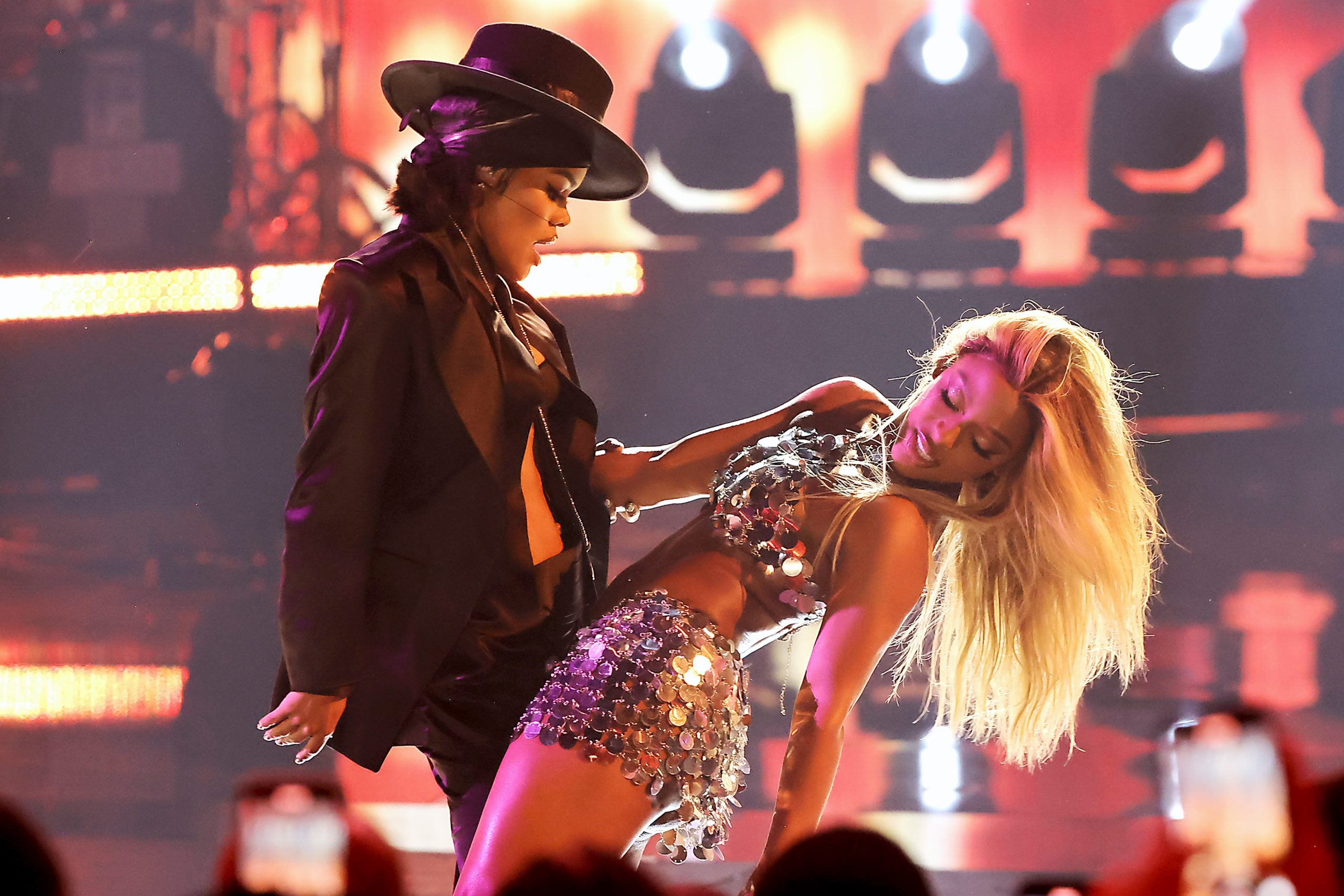
BET feted the creative legacy of Usher Raymond IV with a tribute that included performances from Victoria Monet, Coco Jones, Chloe Bailey, Summer Walker, Tinashe, Teyana Taylor, Marsha Ambrosius, and more.
The medley of hits touched on every moment where Usher mesmerized us. It followed the evolution of a career that has gone from Moesha cameos to center stage at the Superbowl.
It dived into the My Way area and swam into 8701, eventually plunging into the depths of the technicolored crunk years that found him making classic Confessions.
Childish Gambino kicked things off by introducing Keke Palmer, who wore an interpretation of one of Usher’s most iconic outfits while performing “You Make Me Wanna.”
The tribute was full of natural successors to Usher’s talent and charisma. They picked up his affectations and nodded at the habits he picked up during his Las Vegas residency. He smiled and nodded approvingly as they led the crowd in appreciating the icon.
Social media cried foul at the range of talents who came together to celebrate the genre’s heavyweight. They questioned the lineup and argued that other names would have been better suited to celebrate the man who gifted us “Bad Girl” and “Caught Up.”

The majority of their suggestions were men. Some of them are popular, some of them used to be popular, most of them had little qualifications beyond half a decent Soundcloud single and penis.
People name-dropped several artists who have faded from the fleeting public memory. They brought up their vocal capabilities and performance prowess – not because they were legitimate competition for the women dominating the stage, but because they were male and, therefore, more qualified. These people were not thinking about these men nor their stilted discographies before they saw Black women gleaming in the spotlight.
Some went as far as to outright ask where the male performers were, as if a valid tribute could not be performed without them. Once again, Black men were only being uplifted for the purpose of minimizing Black women.
If these men were so in demand, they would be the ones garnering all of the attention and the offers…but they’re not.

Nothing about having a uterus disqualifies you from being able to sing and dance in tribute to Usher. Artists do not have to be the same gender or in the same genre to appreciate one another. That is not how art works.
As tends to be usual, Black women artists were maligned while putting forward stellar performances, experimenting in their craft, and doing things artists from any other demographic get to do without so much as the bat of an eyelash.
These artists demonstrated their commitment to celebrating their OG with passion and creativity. They rehearsed, studied, and executed.
Palmer’s bust down did not prevent the A cap from fitting right onto her head as she kept up with the choreography. Taylor’s pouty lips and angled cheekbones were not in the way as she tapped into a masculine energy with a forceful grace. Jones’ mellow tone and enviable curves did not stop her from being just as capable of executing an in-crowd seduction as Usher – just ask NLE Choppa.

Latto served up the same playful but commanding energy as Ludacris on “Yeah!”
Award shows are not only about talent. They are about heat. The women assembled on stage are some of the hottest performers in the R&B space right now.
They are at the top of their games. They dominate the streaming charts, cultural conversations, and the news cycle. Why shouldn’t they be tapped to shine a light on Usher’s impact? Who would consider it smart to usurp them for someone else just because they happened to be male?

Usher has a history of being one of the most influential artists in music. His dance moves have been recreated on social media, in skits, and on one particularly hilarious episode of the short-lived but memorable Grand Crew. His lyrics turn even the most stuck-up crowds into full-fledged sing-alongs.
If you find it unthinkable to assume that his influence could be interpreted and celebrated by women, that’s really more of a U problem.